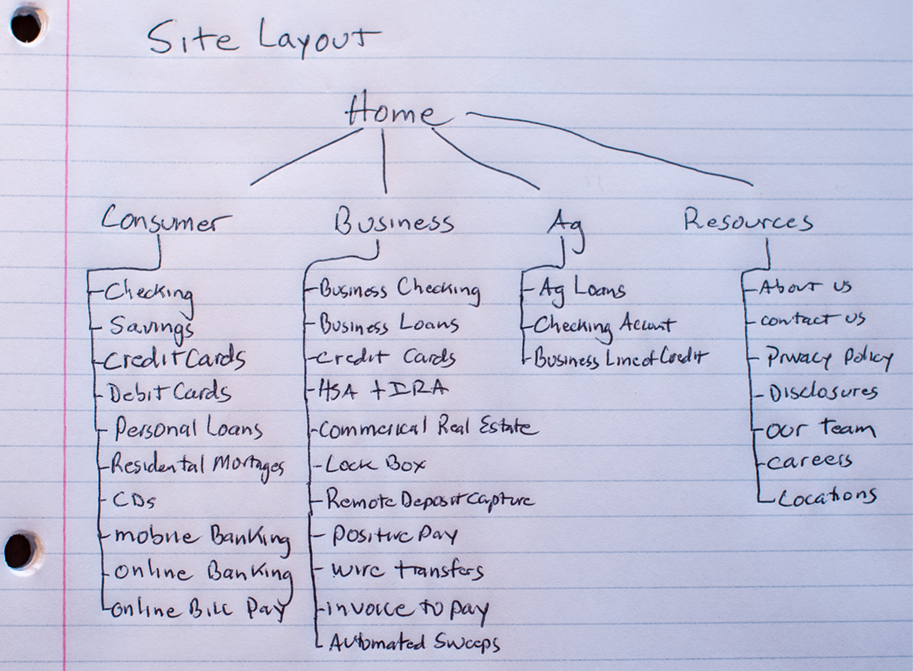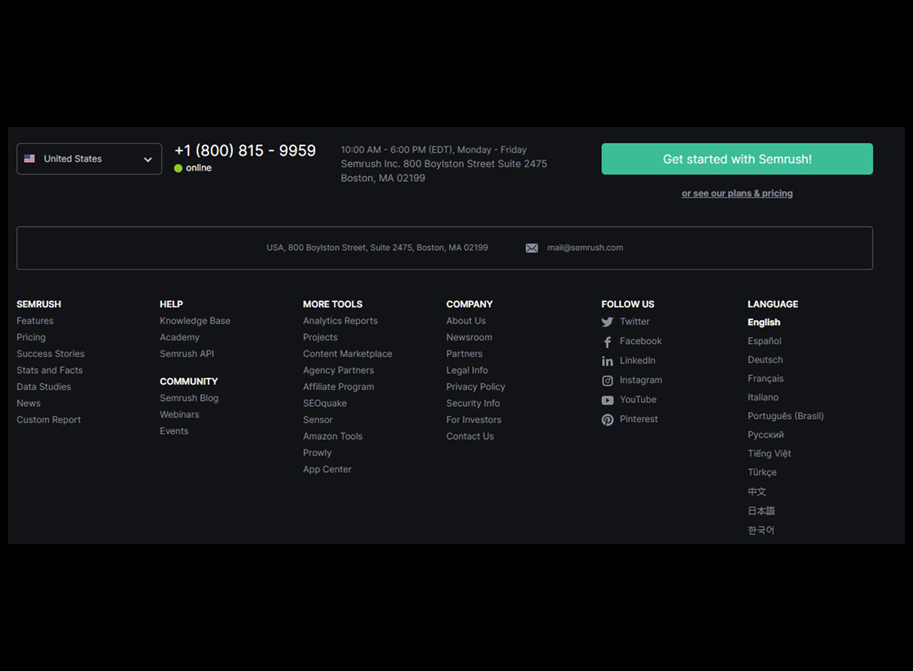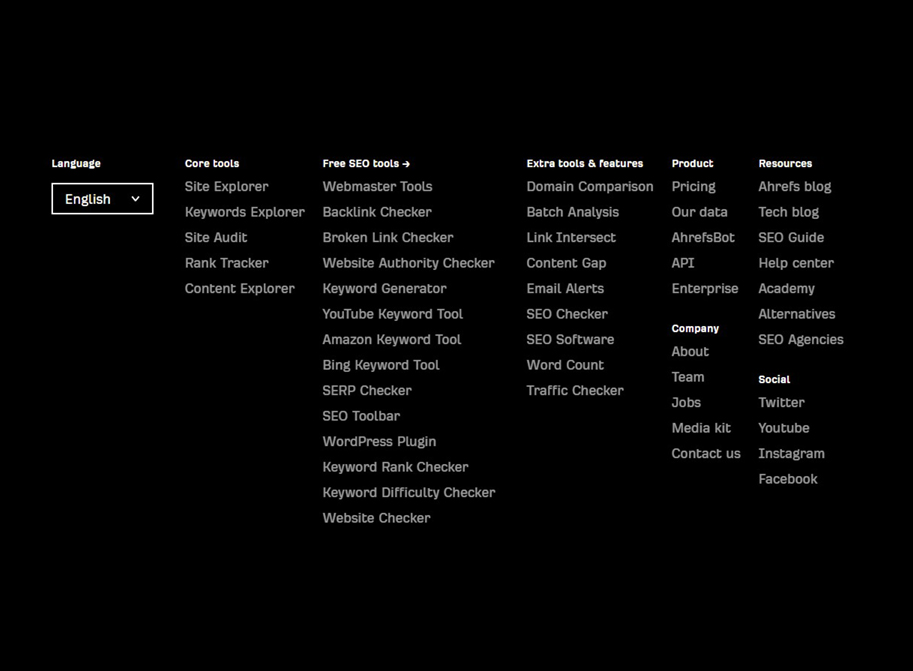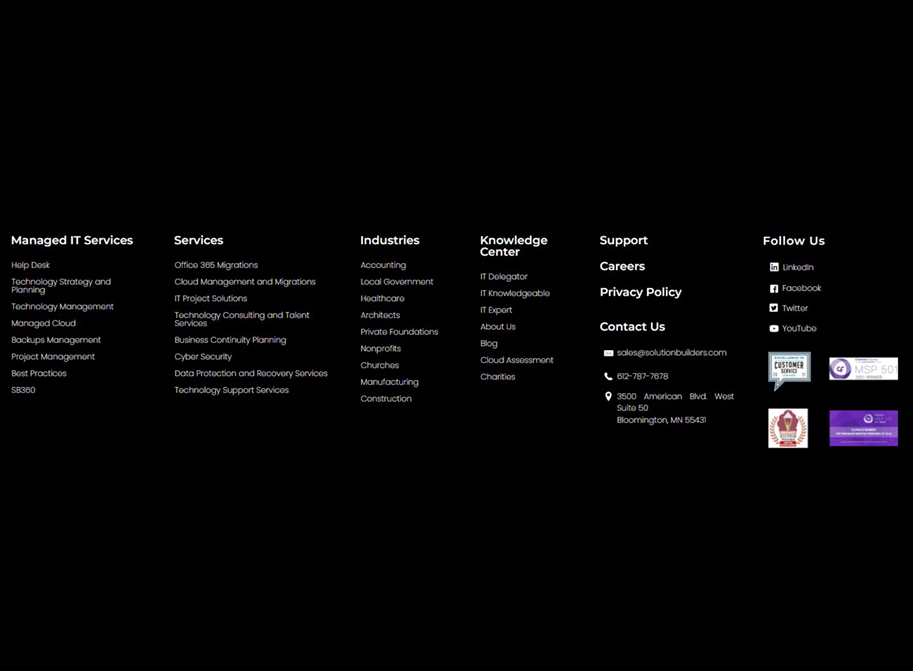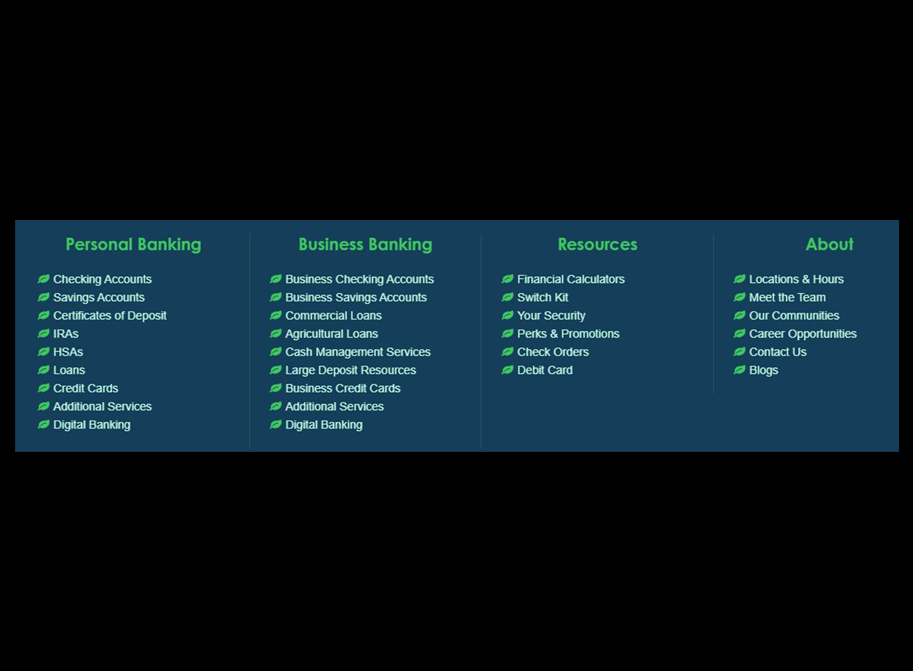
One of the most powerful ways to build additional traffic to your institution’s treasury management portion of your website is to create a weekly blog with content focused on customers who use treasury management services. Below, we’ll go over how to start a weekly treasury management blog in 10 steps.
Why do you need a blog in the first place? First, it is a great way to build traffic to your site and build search engine relevance for your site. If you don’t have constantly improving and expanding content on your site, the search engines tend to de-prioritize the search engine rankings. Second, a blog gives you credibility and portrays your institution as subject matter experts in the areas you blog on. Third, blogging gives you content to use across not only your website, but across all your social media platforms. Finally, as time goes on, the blog is your content master – a place your marketing team can pull information from to build other content. The great thing about this content? It is yours! You don’t have to license it from anyone.
10 Steps to Build a Treasury Management Blog
Step 1: Is Your Website Ready for a Blog?
Many banking websites we see are simply not ready for a blog. Either the design gets in the way, or the site is very outdated and needs a re-do before it is ready for a blog. Here are a few tips for integrating a blog into your website:
- Does the website have a blog engine built in? If your site is built on WordPress, you have a blog engine built in, making it much easier to integrate a blog into the site. There are also other platforms which have a blog engine built in.
- Does the site have an easy way to optimize the blog postings for Search Engine Optimization (SEO)? For instance, WordPress sites can easily integrate the free Yoast SEO tool, giving the site owner a powerful tool in optimizing every page on the site. While Yoast integrated into your site is by far the easiest way to optimize for SEO, you can do it manually or with 3rd party tools – it just takes more time.
- Do you have a place on your website where you can host a business-focused, treasury management blog? We are talking about business products here (sorry consumer folks), so you need a good place to have a business-focused blog. If the site has built in blogging features, you should be able to have two blogs on the site – one for consumers and the other for businesses. They could share the same blog database but be displayed on different pages based on the content type you have selected in the blogging software.
- There are several ways to have a single blog database or multiple blog databases on your site. Your web developer should be familiar with them and can provide input into making the right decision for your needs.
- Write your content from the perspective of the target person who will be reading the blog. Use their language. Business blog for business content and consumer blog for consumer content.
- Is the blog hosting site accessible to the person who will be doing the blog posting? Many times, the folks who produce the content have no access to the website hosting the content (we call this “IT holds the company hostage”). In the case of a site using Yoast SEO, the person doing the posting to the site will need to utilize the site features and needs some access to the website itself. We recognize that this may pose a security threat to some organizations but figuring out how to securely grant the necessary access is critical to avoiding frustration for both the security and content creation teams.
- Can you properly integrate the blog into your website, so your website properly picks up the “SEO Mojo” from your blog?
- This can be a challenging one if you decide to use a 3rd party hosting service for your blog. The URL structure is critical for SEO, and a bad decision can hurt performance.
- The URL structure for the blog should reside under your website. For instance, the URL structure of https://communitybank.io/blog would be a great choice for your blog as any SEO from the blog will be beneficial to the site as a whole.
- Contrary to the above example, the URL structure of https://blog.communitybank.io will not be beneficial for SEO for the main site. In the search engine’s view, your blog is on a different website than your main website. Other examples of this could be https://my-bank-blog.wordpress.com/ or https://my-bank-blog.bloggingplatform.com.
- A corollary to the correct URL structure of https://communitybank.io/blog is the way WordPress and other website engines handle blogs. They can be configured to either be under the /blog/ structure or directly off the root of the website (https://communitybank.io/my-blog-subject/). We recommend the 2nd option as it reduces the depth of the URL structure and is good for SEO.
- We recommend staying away from 3rd party, “off site” blogging options. The amount of work you do to maintain a blog will not result in much SEO benefit for your main site.
Step 2: Design the Blog
Now that you’ve decided on where to host your blog, its time to think about how it will look on your site. We have several considerations for you:
- What will the blog look like on both desktop and mobile? You have plenty of space to surround the blog with promotional information on the desktop site, but little to no space to do this on the mobile version. Do some research to see what other successful bloggers have done with the right and left margins on their blogs, both on desktop and mobile versions.
- Does the blog need either keywords or hashtags or something similar for each blog posting? How will this look on the site? Will you have a place where the blog user can click on one of your keywords and filter the blogs into that keyword? How about search? How will that be integrated into the blog?
- We don’t recommend hashtags as a general guideline. Search engines are much more advanced these days, so use them sparingly and for specific uses.
- On the blog design, do you wish to have a featured image with each blog posting? We recommend a featured image for each blog posting as this image is picked up by search engines and is displayed in search results. Work with your website developer on a standardized blog featured image size. For instance, Malzahn Strategic’s standard blog image size is a 913×671 96dpi or 72dpi JPEG image. You would use this standard size for every blog featured image, so someone on your team will need to be proficient at Photoshop or other software which can change images around to the correct size.
- Do you need any calls to action on the blog pages? Many times, organizations build calls to action into left or right columns or into the footer to make it easy for someone reading a blog to contact them. We also recommend placing a link to your contact page in each of your blog postings, so the reader knows where to go next.
- In addition to your featured image for each blog posting, you will also want to SEO that image. You’ll need Alternative Text, Caption, and Descriptions for each of your images. Providing this data to search engines is powerful – always SEO optimize every image on your site!
Step 3: Create a Blog Team
Now that you have some of the blog design and hosting questions figured out, it’s time to build your blogging team. Yep, you don’t have to do all of this alone. Here are some tips for building a blog team.
- Build your team from subject matter experts across the organization. Recruit folks from operations, credit, business banking, consumer banking and any other areas you’ll be blogging about. They will serve as your editors and subject matter experts when there is a question about a topic you are writing about.
- Brainstorm on content you know your business customers are asking about. Since your team will be from across many areas of your institution, the team should be able to come up with content ideas the customer base would be interested in.
- Set up a monthly blog team meeting to talk about potential blogs and when they’ll be published. The team will need to keep a running list of blog ideas, preferably about 20 items deep so you have time to think about a blog and write it. We typically are working about 10-20 weeks out on content ideas.
- In the monthly meeting, take the upcoming four blogs and assign them to team members. Ideally, the workload will be split, but not everyone is a writer. Maybe you have to come up with creative ways to get writing out of them, such as recording an audio or video and then typing a transcript.
- Critical things the team needs to agree on: “voice” of the blog (how it reads – first person, neighbor, college professor, etc.), editorial standards (AP style, Chicago style, etc.), and the intended target “persona” reader of the blog. Neil Patel has a great blog posting on this subject.
In part two of this series, we’ll work on your blog’s purpose, design your editorial process, and build a blog posting checklist.
We hope you learned something about creating weekly treasury management blog to help drive leads to your institution. What treasury management projects are you working on? We’re always here to help.
Looking for ideas to expand your Treasury Management reach to new business customers? Look into the TMClarity Framework, our comprehensive and transformative training and Treasury Management business management system that leads to greater sales success, higher margins, and increased customer retention in a competitive marketplace.



